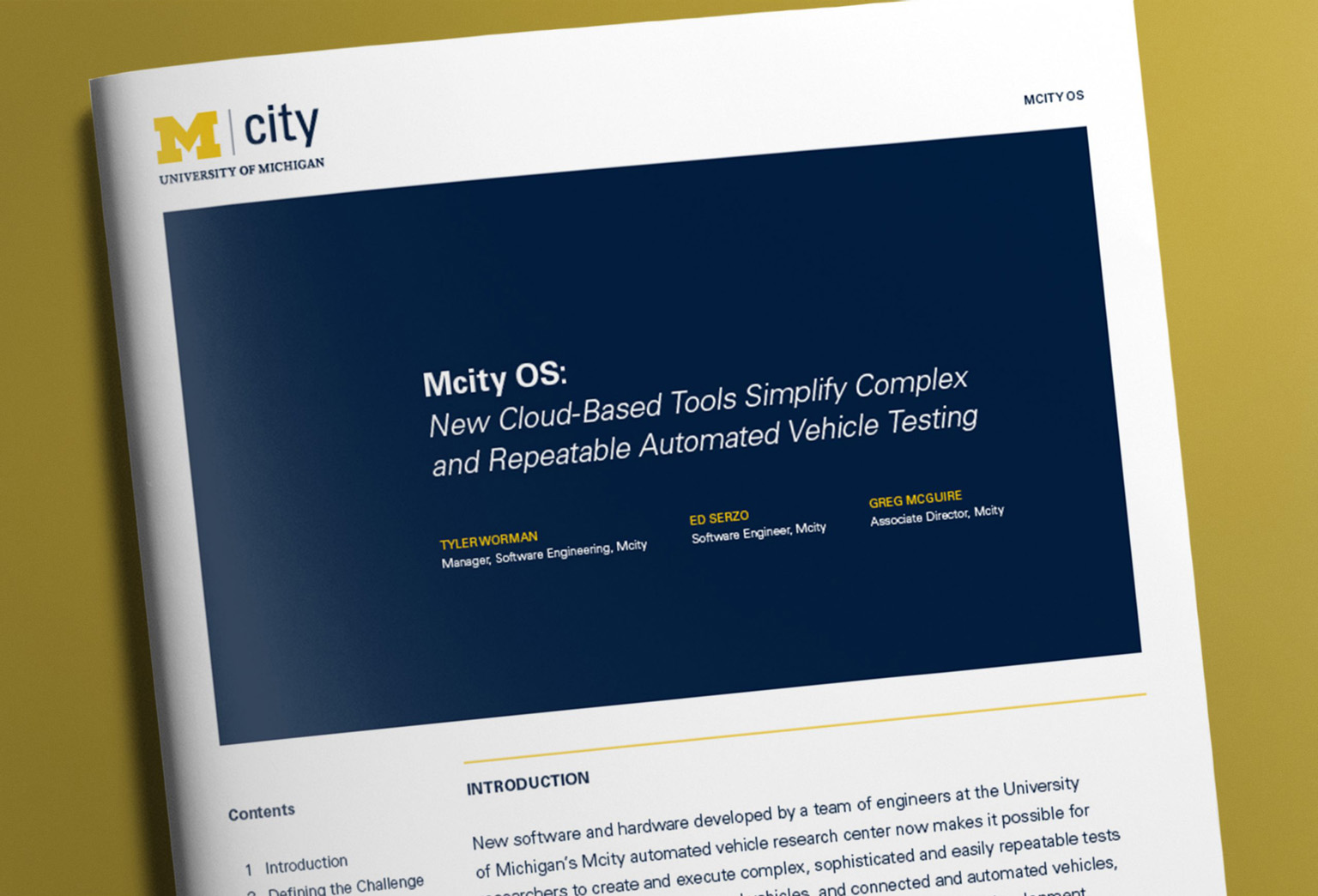New Mcity OS tools make it easy to create, execute, and repeat AV test scenarios at Mcity Test Facility or other test sites

New software and hardware developed by a team of engineers at the University of Michigan’s Mcity automated vehicle research center now make it possible for researchers to create and execute complex, sophisticated, and easily repeatable tests of connected vehicles, automated vehicles, and connected and automated vehicles, potentially saving testing time and costs, and accelerating product development.
The new Mcity OS is a cloud-based operating system that runs on any internet-enabled device, including vehicle computer platforms, laptops, tablets, and smartphones to control all the features of the Mcity Test Facility.
Mcity published a new white paper today about Mcity OS.
Mcity OS gives users point-and-click control over vehicle interactions at intersections, train crossings, crosswalks, and other test facility features. Using a simple visible programming language, Mcity OS makes it possible to drag and drop instructions to control all testing features and create easily repeatable multi-step test scenarios.
“Vehicles of the future are going to be magnitudes more capable and complex in their behaviors than vehicles today. Test facilities have to come along with them in terms of their capabilities. You can’t have a dumb test facility testing a smart car.”
Greg McGuire, Associate Director, Mcity
Mcity OS can be integrated at other test facilities and in real-world environments as well. The American Center for Mobility in Ypsilanti, Michigan, is the first facility to license Mcity OS through the University of Michigan’s Office of Technology Transfer. Mcity OS also provides researchers access to connected vehicle and intersection data in Ann Arbor, Michigan.
The Mcity OS software was developed by Tyler Worman, software engineering manager for Mcity, and Greg McGuire, associate director of Mcity. Supporting hardware was built by Ed Serzo, a software engineer for Mcity.
Mcity OS also helps bridge the gap between software and hardware simulation and real-world testing by providing a consistent, simple interface, repeatable test scenarios, and data collection to enable fully virtual control as well as augmented reality, blending both the real and simulated environments.
“Vehicles of the future are going to be magnitudes more capable and complex in their behaviors than vehicles today,” McGuire said. “Test facilities have to come along with them in terms of their capabilities. You can’t have a dumb test facility testing a smart car.”
The white paper is titled, “Mcity OS: New Cloud-Based Tools Simplify Complex and Repeatable Automated Vehicle Testing.”